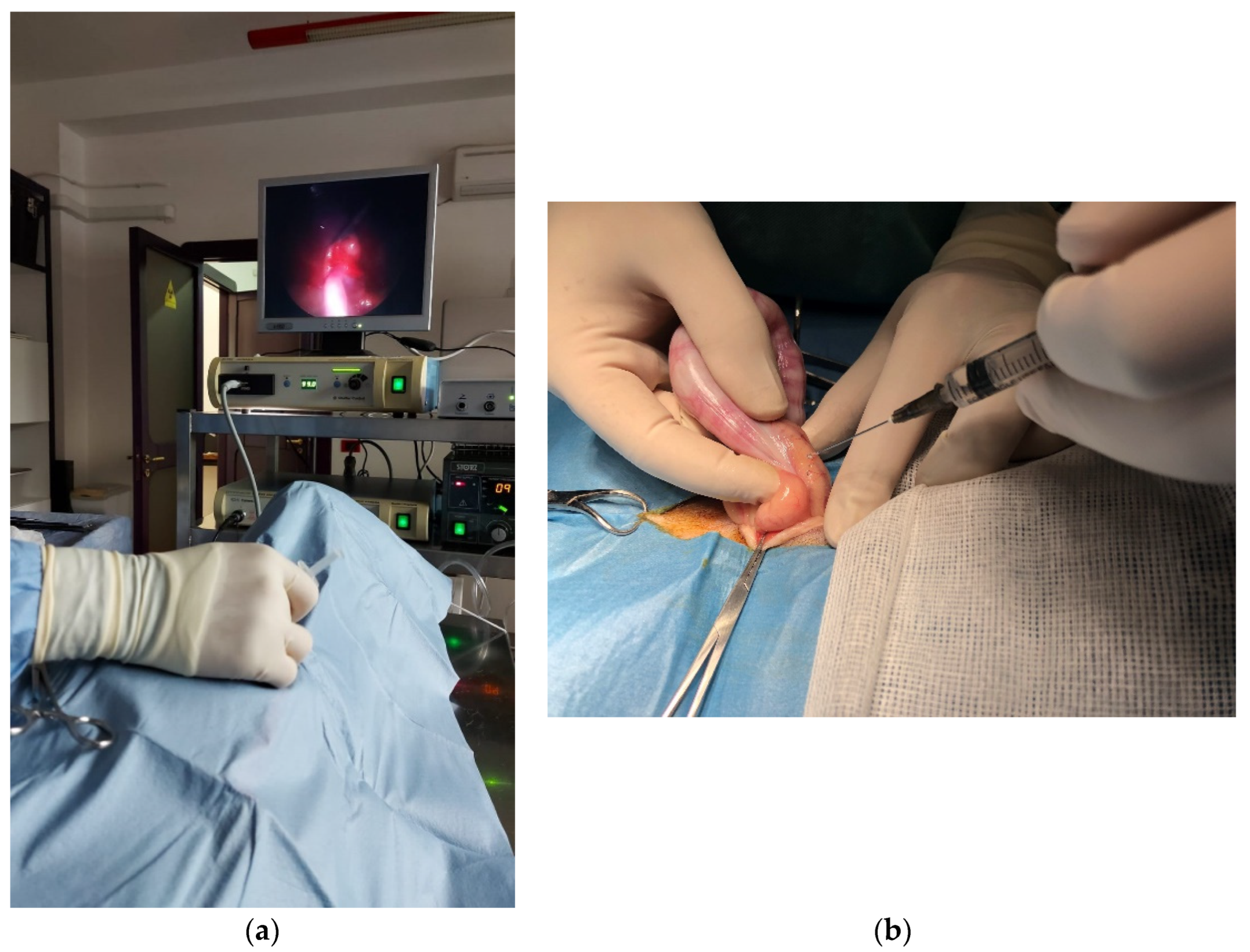A dog can live a normal life with a hernia if it is treated promptly. Hernias in dogs, just like in humans, can be treated and managed, allowing the dog to lead a normal and healthy life.

Credit: www.mdpi.com
Types And Treatment Of Dog Hernias
Dogs with hernias can be treated and live normal lives. It’s important to seek medical treatment as soon as possible to prevent pain and complications. Surgery may be required, but with successful treatment, dogs can heal and resume a healthy lifestyle.
Umbilical Hernias
Umbilical hernias are common in dogs, especially in puppies. These hernias occur when there is a weakness in the muscular wall around the umbilical cord, allowing the abdominal organs to protrude through the opening. In most cases, umbilical hernias are small and don’t cause any complications. They can often resolve on their own as the puppy grows. However, if the hernia is large or causing discomfort to the dog, surgical repair may be necessary. The procedure involves closing the opening in the abdominal wall to prevent the hernia from recurring.Perineal Hernias
Perineal hernias are more common in older, unneutered male dogs. These hernias occur in the perineal region, which is the area between the anus and the scrotum. The hernia develops when the muscles in this region weaken, allowing the abdominal contents to protrude into the perineal area. Perineal hernias can cause difficulty in defecation, constipation, and discomfort for the dog. Surgical repair is typically required to correct the hernia and strengthen the weakened muscles. In some cases, a synthetic mesh may be used to provide additional support to the area.Diaphragmatic Hernias
Diaphragmatic hernias are less common but can be life-threatening for dogs. These hernias occur when there is a hole or tear in the diaphragm, the muscular wall that separates the chest cavity from the abdominal cavity. As a result, abdominal organs can move into the chest cavity, causing compression of the lungs and other vital structures. Diaphragmatic hernias can occur due to trauma, such as being hit by a car, or as a congenital condition. Surgery is often necessary to repair the diaphragm and reposition the abdominal organs back into their proper place. In conclusion, dog hernias come in different types, and their treatment depends on the severity and location of the hernia. Umbilical hernias are common in puppies and may resolve on their own or require surgical repair. Perineal hernias are more common in older male dogs and usually require surgical intervention. Diaphragmatic hernias are rare but can be life-threatening and often require immediate surgery. If you suspect that your dog has a hernia, it’s essential to consult with a veterinarian for a proper diagnosis and appropriate treatment plan.
Credit: web.musc.edu
Recovery And Longevity
Dogs with hernias can live full lives with proper treatment. Whether it’s an umbilical hernia or an inguinal hernia, medical intervention is essential to prevent pain and potential complications. With surgery and proper care, dogs can recover and lead a healthy and normal life.
Treatment Of Hernia In Dogs
If your dog has been diagnosed with a hernia, the next step is to discuss treatment options with your veterinarian. The recommended treatment will depend on the type and severity of the hernia.One common treatment for hernias in dogs is surgical repair. During this procedure, the hernia is carefully repaired and the abdominal muscles or other affected organs are returned to their proper position. It is important to address the hernia surgically to prevent further complications and discomfort for your furry friend.In some cases, your veterinarian may suggest a non-surgical approach for smaller, less severe hernias. This may involve managing the hernia through dietary changes, exercise restrictions, or medications to help alleviate any discomfort. However, it is important to note that non-surgical treatment methods may not be suitable for all types of hernias or more severe cases.Recovery Of Hernia In Dogs
After undergoing hernia repair surgery, your dog will require a period of recovery. It is essential to follow your veterinarian’s instructions and provide proper care to ensure a smooth healing process.During the recovery period, your dog may be prescribed pain medication to manage any discomfort. It is crucial to administer the medication as directed and keep an eye out for any signs of complications, such as excessive redness, swelling, or discharge at the surgical site.Your dog will also need to restrict exercise and physical activity for a certain period to prevent strain on the surgical area. Your veterinarian will provide guidelines on how long this restriction should last and when it is safe to gradually reintroduce normal activities.To aid in the recovery process, it is essential to provide a calm and stress-free environment for your dog. Ensuring they have a comfortable and cozy place to rest, along with regular check-ups with your veterinarian, will assist in their overall healing.Can A Dog Live A Full Life With A Hernia?
The good news is that with proper treatment and care, dogs can live full and normal lives with a hernia. It is crucial to address the hernia promptly and follow the recommended treatment plan.While occasional check-ups may be required to monitor the hernia and ensure no complications arise, most dogs can go on to enjoy a long and happy life. With love, attention, and regular veterinary care, you can provide your furry companion with the best chances of a healthy and comfortable life. Remember to consult your veterinarian for personalized advice and treatment options specific to your dog’s condition. Together, you can work towards a successful recovery and ensure your dog’s longevity and well-being.
Credit: www.wellstar.org
Frequently Asked Questions On How Long Can A Dog Live With A Hernia
Can A Dog Live A Full Life With A Hernia?
Dogs with hernias can live full, normal lives with proper treatment. Surgery may be necessary to repair the hernia and prevent complications. Immediate medical attention is important, as hernias do not heal on their own and can cause pain for the dog.
Can You Leave A Hernia Untreated In A Dog?
Leaving a hernia untreated in a dog is not recommended. It can cause pain and lead to medical complications. Dogs cannot outgrow a hernia, and it won’t heal over time. Immediate medical treatment is necessary for a dog with a hernia.
Are Dogs In Pain When They Have A Hernia?
Dogs can be in pain when they have a hernia. An untreated hernia can cause pain and lead to medical complications. It’s important to seek veterinary treatment for a dog with a hernia as soon as possible.
Do I Need To Fix My Dogs Hernia?
Yes, it is important to fix your dog’s hernia. Leaving the hernia untreated can cause pain for your dog and may lead to medical complications. Your veterinarian can advise you on the best course of action for treatment.
Conclusion
Dogs can live a normal life with a hernia, but it is essential to seek medical treatment as soon as possible. Untreated hernias can cause pain and lead to complications. With proper veterinary care and surgery, the hernia can be successfully repaired, allowing the dog to return to a healthy lifestyle.
Remember to consult with your veterinarian for the best course of action for your dog’s specific situation.



